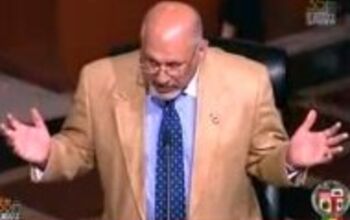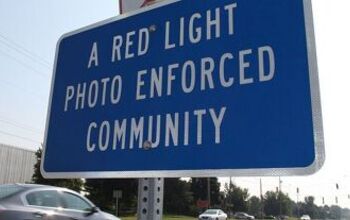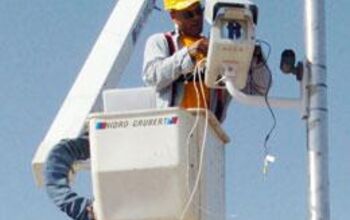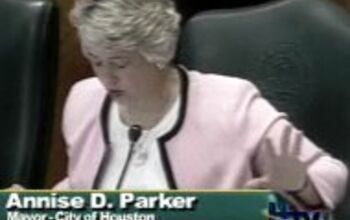Turmoil in Two California Red Light Camera Programs
Red light cameras are shutting down temporarily and permanently in a pair of California cities. Santa Maria’s program has ended for good, thanks to camera vendor American Traffic Solutions (ATS). ATS inherited the Santa Maria account from bankrupt vendor Nestor Traffic Systems in September and has now decided to pull out of the city because it was not earning enough revenue.
Although many jurisdictions claim that they are in full control of their red light camera programs, Santa Maria’s experience demonstrates which party is truly in charge. A local resident who had challenged a photo citation had the case dismissed because the city no longer has any evidence of an alleged violation.
“The company that operates the city’s red light photo enforcement system terminated its contract with the city unexpectedly,” City Attorney Philip Sinco wrote in an email to the resident. “They have shut the system off and have repossessed equipment they provided us with that permitted us to prove up the violations in court. We are unable to prove up these violations now in light of their action.”
All violations will be dismissed as a result. Santa Ana’s attitude is less forgiving. Although the city has finally agreed to shut down its program for thirty days to comply with state law, it will continue to prosecute violations issued during the period when the city was operating in open defiance of several court rulings.
In August, Orange County Superior Court Commissioner Kenneth Schwartz declared the program in violation of a number of provisions of state law (view ruling). Instead of providing notice each time the city added photo ticketing to an intersection, as required by statute, Santa Ana made a single announcement in 2003 with the intention of moving cameras to new intersections within the city limits whenever a particular location failed to generate sufficient revenue.
The Schwartz ruling was far from unique. Appellate rulings throughout the state have consistently found municipal practices contrary to state law. In January, the warning issue had been raised and decided (view ruling). In February, the appellate division found Sacramento County’s camera program had produced unreliable evidence (view ruling). Last December, the appellate division ruled “cost neutral” contracts in Fullerton were illegal (view ruling).
Schwartz has automatically thrown out any red light camera citation from Santa Ana brought before his court as a result, a move that finally forced the city to comply. Because Santa Ana is continuing to prosecute the citations, however, motorists must show up in person to have their $450 ticket dismissed.
More by The Newspaper
Latest Car Reviews
Read moreLatest Product Reviews
Read moreRecent Comments
- Corey Lewis It's not competitive against others in the class, as my review discussed. https://www.thetruthaboutcars.com/cars/chevrolet/rental-review-the-2023-chevrolet-malibu-last-domestic-midsize-standing-44502760
- Turbo Is Black Magic My wife had one of these back in 06, did a ton of work to it… supercharger, full exhaust, full suspension.. it was a blast to drive even though it was still hilariously slow. Great for drive in nights, open the hatch fold the seats flat and just relax.Also this thing is a great example of how far we have come in crash safety even since just 2005… go look at these old crash tests now and I cringe at what a modern electric tank would do to this thing.
- MaintenanceCosts Whenever the topic of the xB comes up…Me: "The style is fun. The combination of the box shape and the aggressive detailing is very JDM."Wife: "Those are ghetto."Me: "They're smaller than a Corolla outside and have the space of a RAV4 inside."Wife: "Those are ghetto."Me: "They're kind of fun to drive with a stick."Wife: "Those are ghetto."It's one of a few cars (including its fellow box, the Ford Flex) on which we will just never see eye to eye.
- Oberkanone The alternative is a more expensive SUV. Yes, it will be missed.
- Ajla I did like this one.


































Comments
Join the conversation
This is a nice lesson in outsourcing. If you outsource something, you are giving up control over that thing. Add law enforcement to the list of things that should never be outsourced. -ted
Here's two little secrets, both peculariar to California. 1. It's more complex than just not making money. The real problem, which they don't talk about: These cities' contract with the company which provides the cameras contain a cost-neutral clause like that found in three CA cities where the contract has recently been overturned on appeal. (San Mateo, Daly City, Fullerton.) The appeal judges found that cost neutral contracts violate Cal. Veh. Code 21455.5(g). I think the expressed concerns, that they are losing money or that the fines are too high is just a convenient excuse to bail out before their courts to begin ruling like in OC and San Mateo County. 2. Another secret about the tickets: Drivers anywhere in California need to know about Snitch Tickets, which are fake/phishing red light camera tickets sent out by some CA police departments to fool the registered owner into ID'ing the actual driver of the car. (He doesn't have to.) Snitch Tickets haven't been filed with the court so they don't say "Notice to Appear," don't have the court's address, and say (on the back, in small letters), "Do not contact the court." Since they have NOT been filed with the court, they have no legal weight. You can ignore a Snitch Ticket. If in doubt, Google the term. (California has Snitch Tickets because here a red light camera violation is the responsibility of the driver, not necessarily the owner of the car. In most other states it is "owner responsibility.")